Zhang Jun attends 19th Meeting of Chief Justices of Supreme Courts of SCO Member States
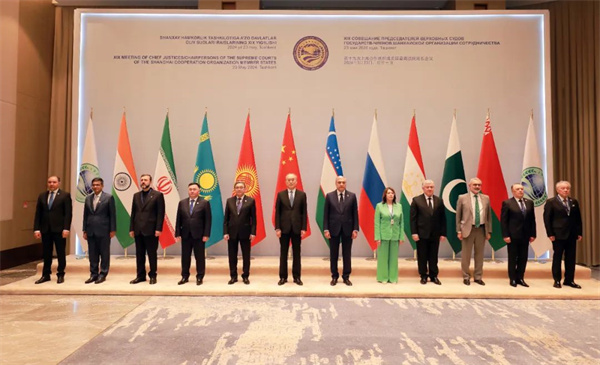
The 19th Meeting of Chief Justices of Shanghai Cooperation Organization Member States opens in Tashkent, Uzbekistan, on May 23, 2024. [Photo/court.gov.cn]
The 19th Meeting of the Chief Justices of the Supreme Courts of Shanghai Cooperation Organization (SCO) Member States opened in Tashkent, Uzbekistan, on the morning of May 23. Zhang Jun, chief justice and president of the Supreme People's Court (SPC) of China, attended the opening ceremony and delivered a keynote speech.
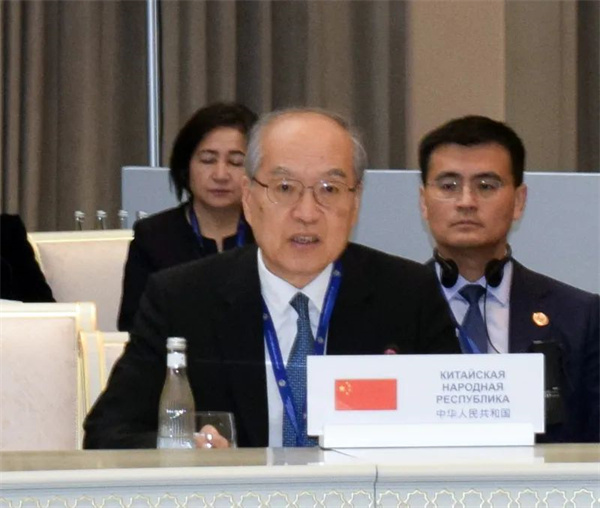
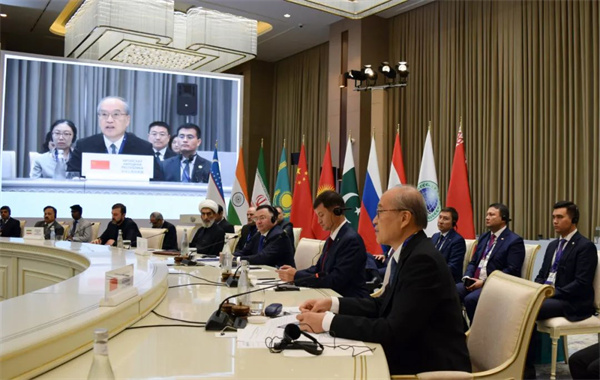
Zhang Jun, chief justice and president of the Supreme People's Court of China, attends the opening ceremony of the 19th Meeting of the Chief Justices of the Supreme Courts of Shanghai Cooperation Organization Member States, and delivers a speech on May 23, 2024. [Photo/court.gov.cn]
Zhang said that in the past 23 years since it was founded, the SCO has upheld the "Shanghai Spirit", which features mutual trust, mutual benefit, equality, consultation, respect for cultural diversity, and the pursuit of common development.
He highlighted the organization's commitment to promoting world peace, development and human progress, saying it has contributed significantly to the establishment of a new type of international relations and the building of a community with a shared future for mankind.
Zhang said that judicial exchange and cooperation is a crucial link for SCO member states in maintaining regional prosperity and stability, as well as enhancing the well-being of their peoples.
Amid the complex changes in the international climate, it is increasingly essential for the judicial institutions of member states to uphold the "Shanghai Spirit," strengthen unity, cooperation, communication, and consultations to inject fresh vitality into judicial cooperation within the SCO and contribute to world peace and development, he said.
In his speech on "adjudication practices of criminal cases involving transnational human trafficking," Zhang stressed the significance of preventing and punishing cross-border human trafficking crimes, and shared China's judicial practices in this regard.
He emphasized strict punishment for ringleaders of cross-border human trafficking cartels, while combining leniency with severity in criminal policies, to effectively curb the crime. Chinese courts have intensified the crackdown on "buyer's market" and improved the standards for the application of laws in handling human trafficking cases, according to Zhang.
Efforts have been made to promote social governance by delivering judicial suggestions to related government departments and social institutions, and offering judicial assistance and psychological counseling to the victims of trafficking, he said.
Chinese courts worked with related departments to carry out special operations against human trafficking to rescue victims in a timely manner, Zhang said, adding that they also attended international exchanges and followed international agreements in this area to jointly fight against transnational human trafficking.
Zhang also expressed China's willingness to collaborate with other SCO member states to promote the "Shanghai Spirit," enhance mutual learning, deepen practical cooperation, and collectively address new challenges in handling transnational crimes, particularly in combating human trafficking.
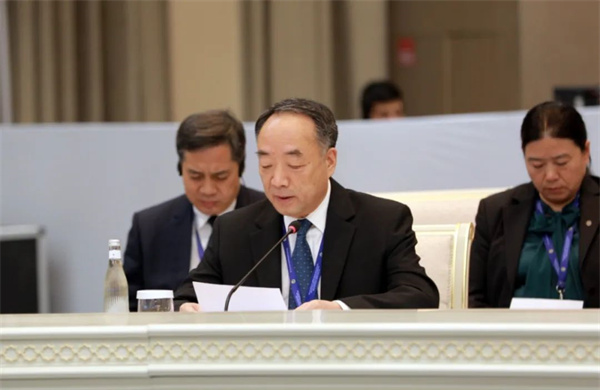
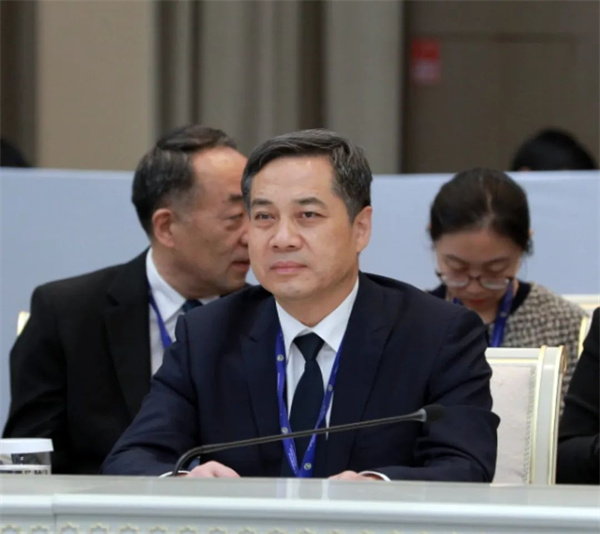
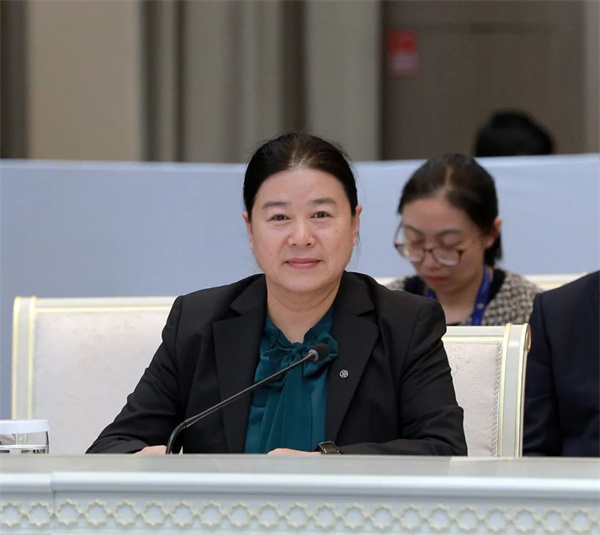
Members of the Chinese delegation speak at the 19th Meeting of Chief Justices of Shanghai Cooperation Organization Member States on May 23, 2024. [Photo/court.gov.cn]
The opening ceremony was chaired by Islamov Bakhtiyar Jahangirovich, chairman of the Supreme Court of the Republic of Uzbekistan.
Niyazaliev Nuran Sadyrovich, deputy secretary general of the SCO, and Mirzaev Ruslan Erkinovich, director of the Executive Committee of the Regional Anti-Terrorist Structure of the SCO, spoke at the meeting. Chief justices and heads of top judicial organs of SCO member states as well as Belarus, an observer state of SCO, also made speeches at the meeting.







